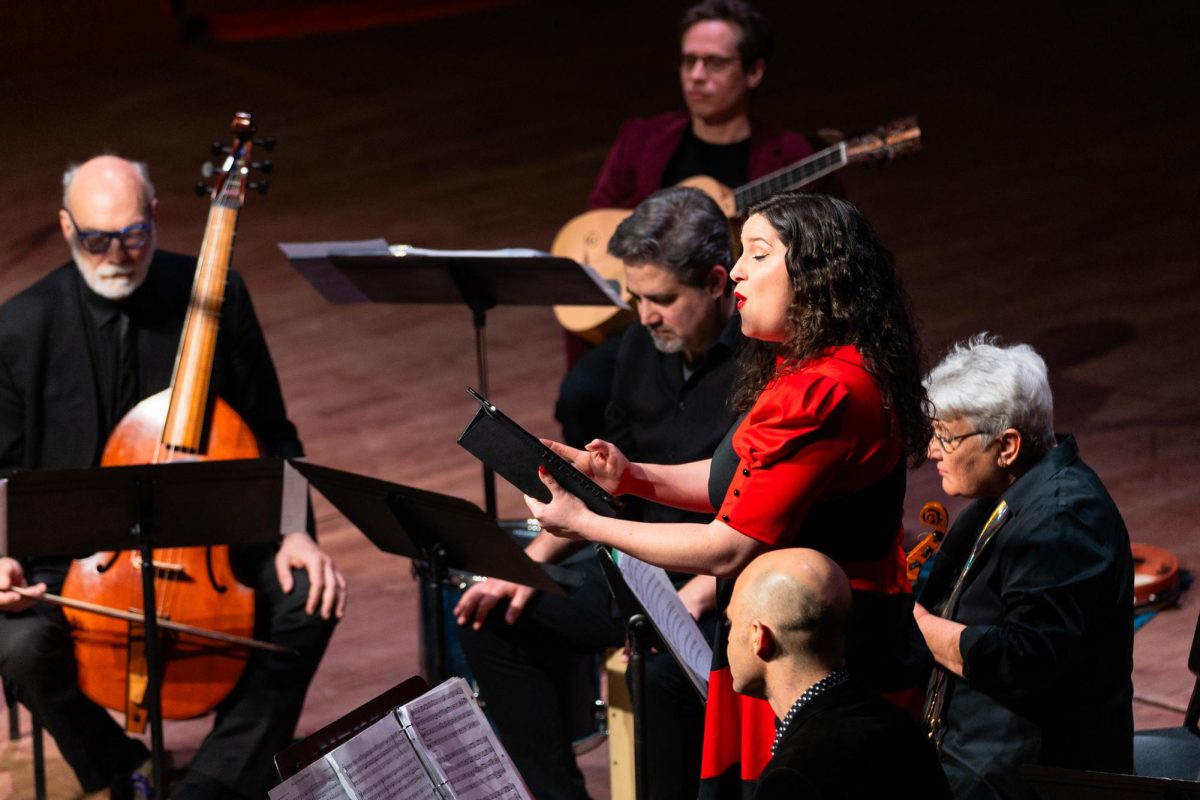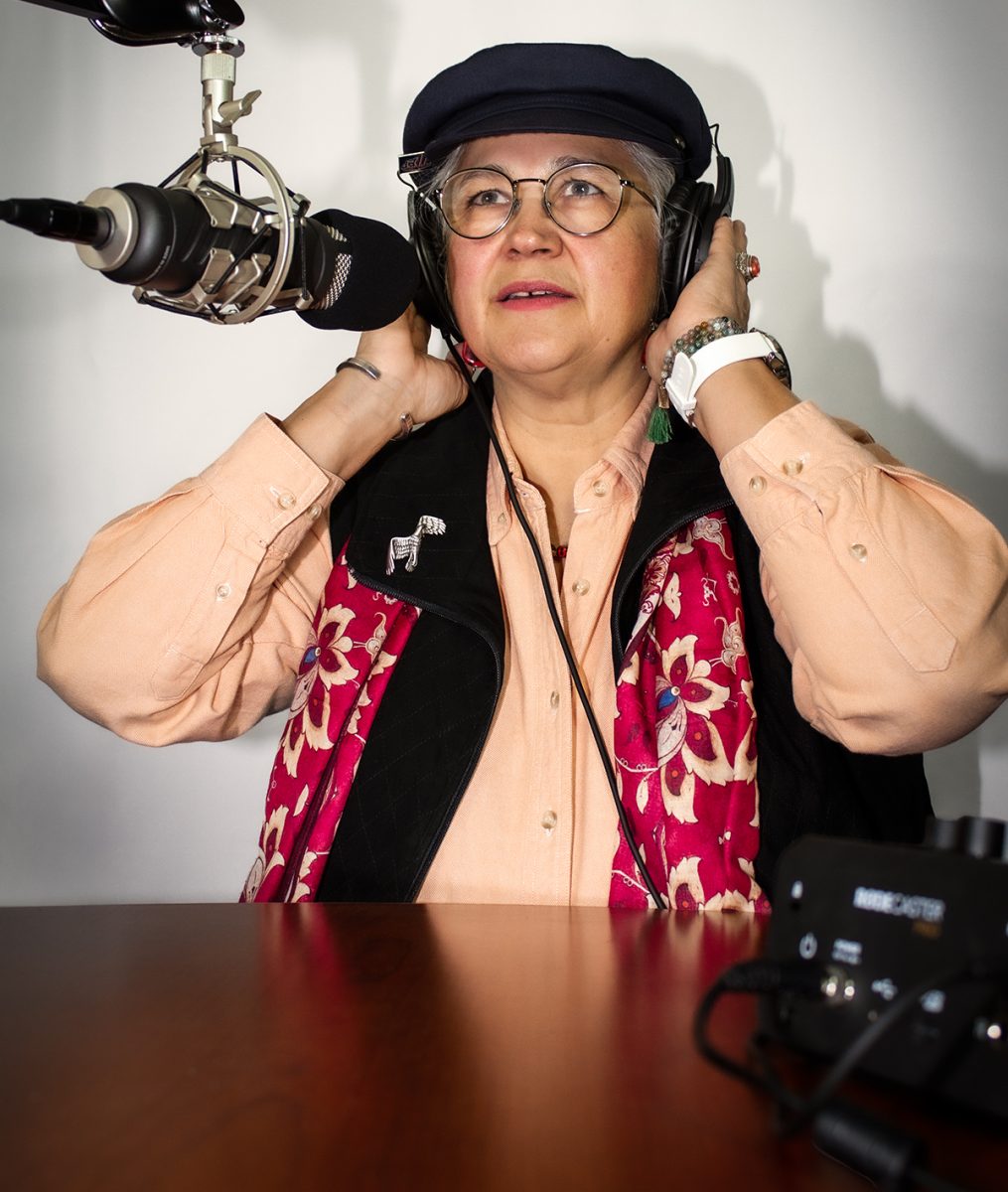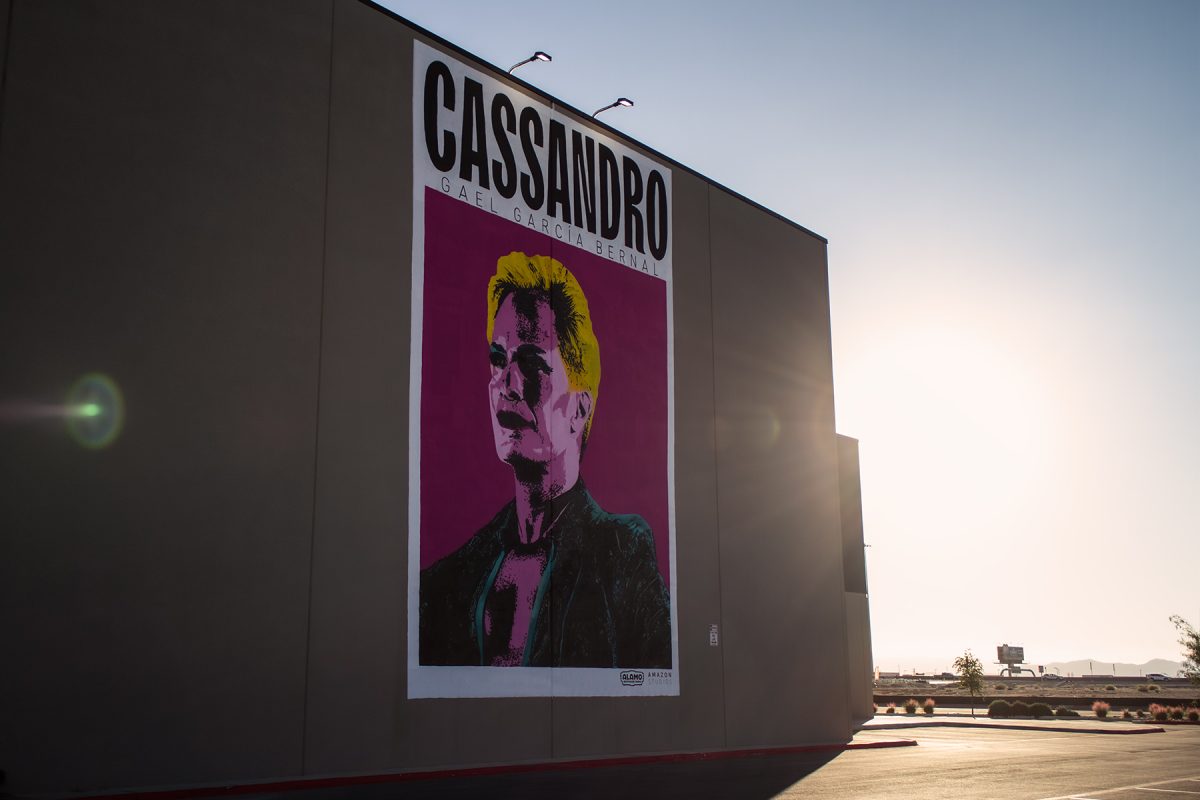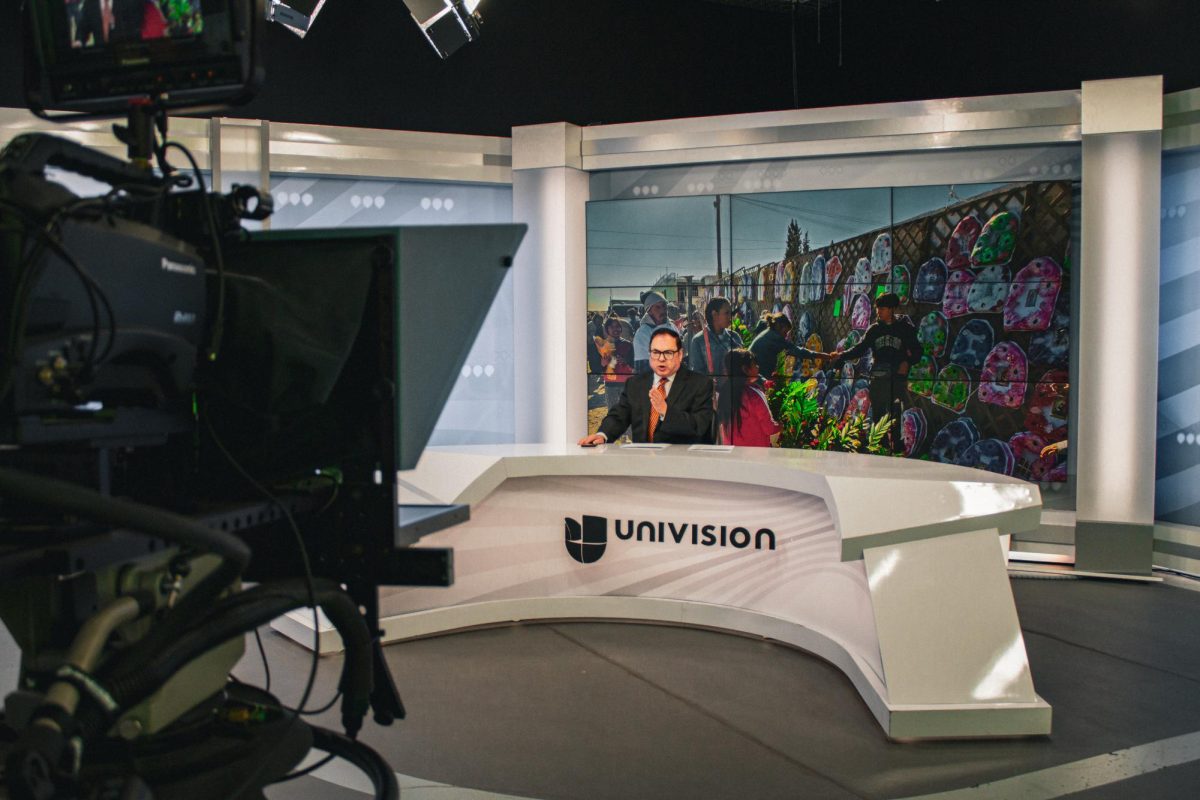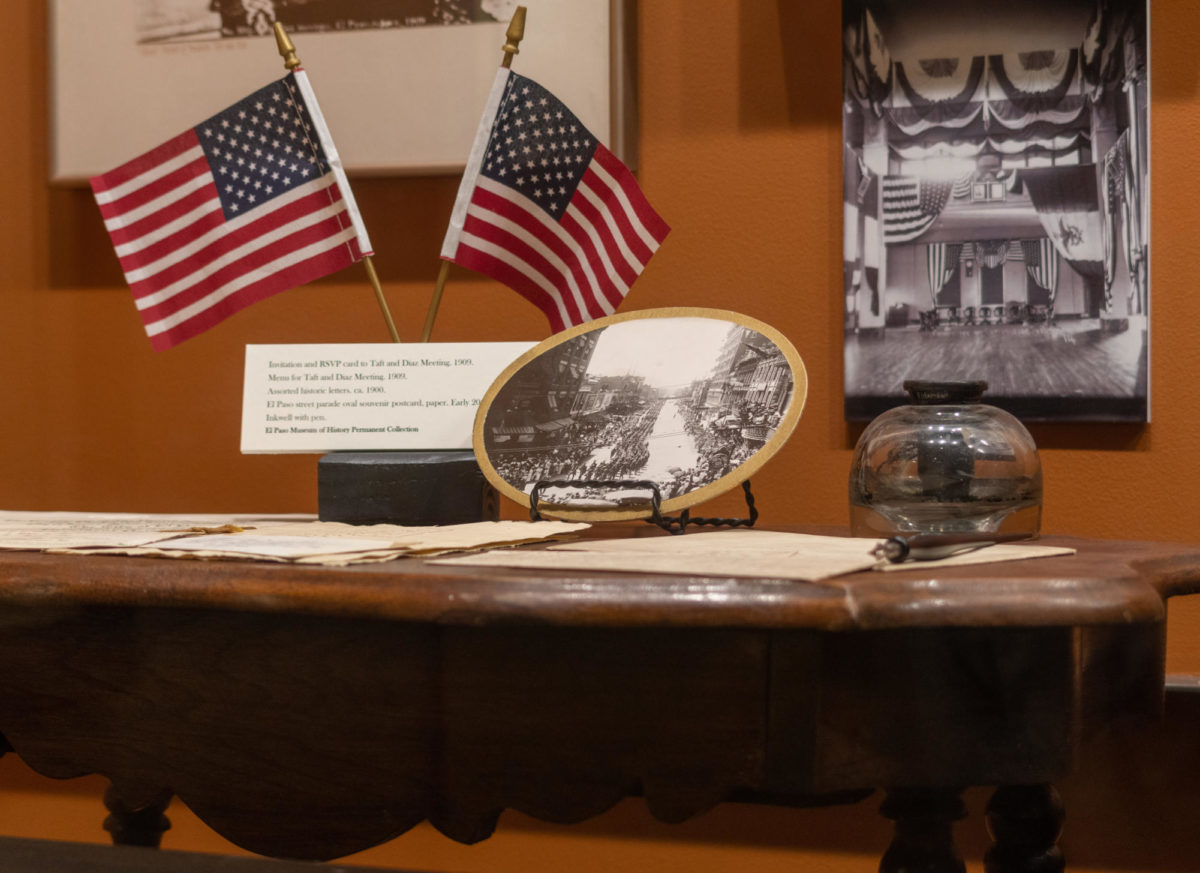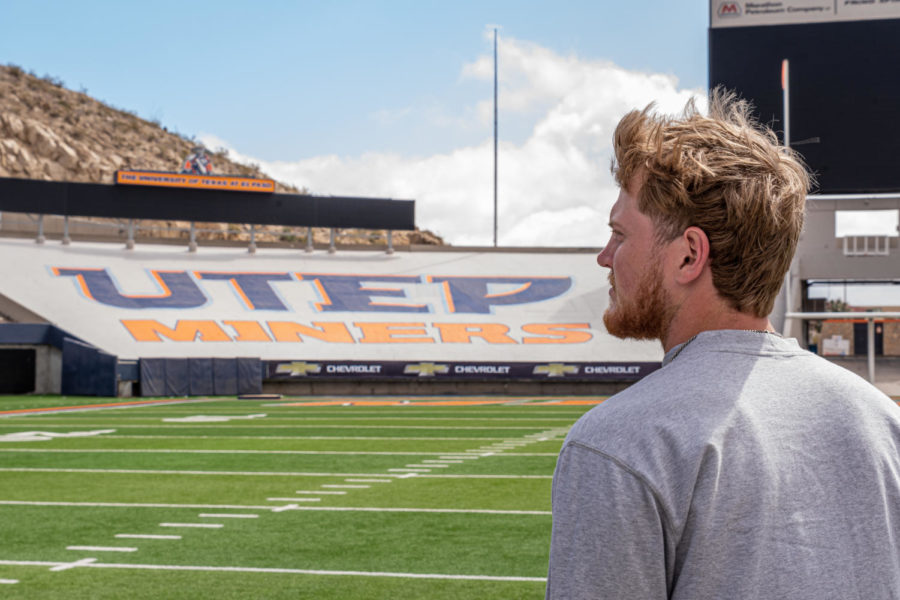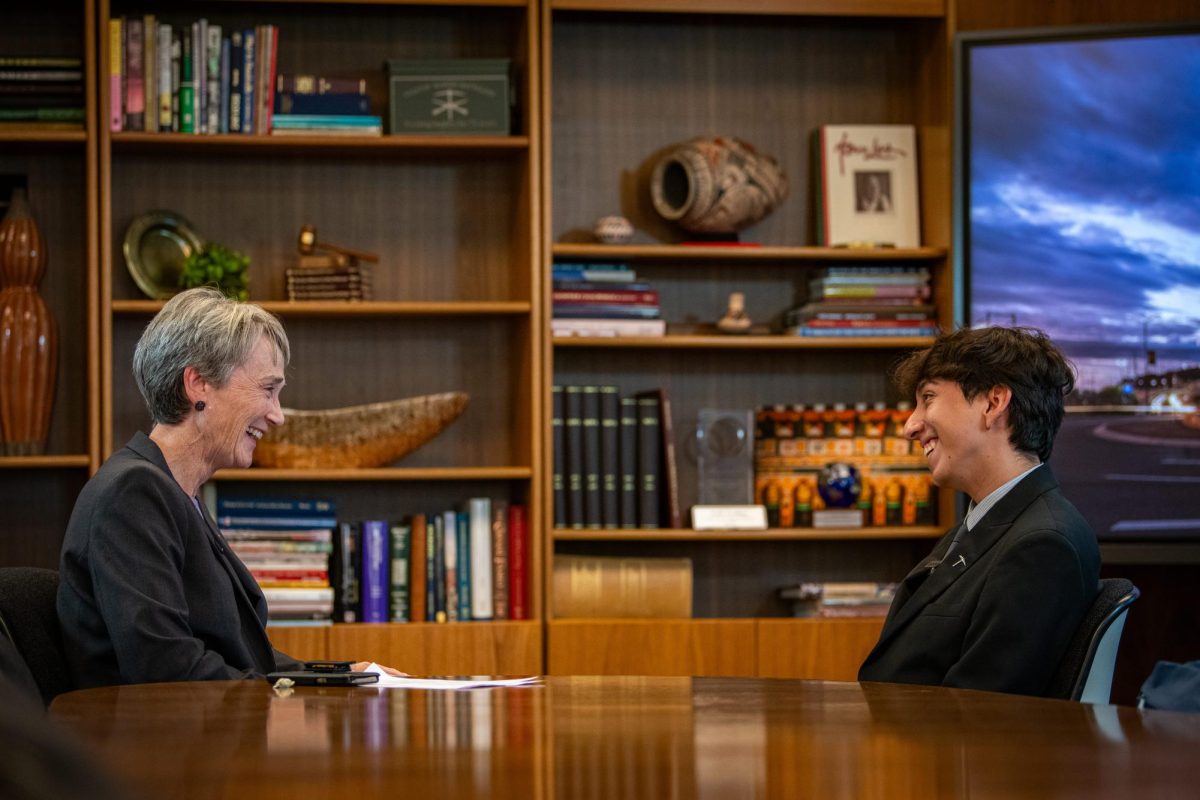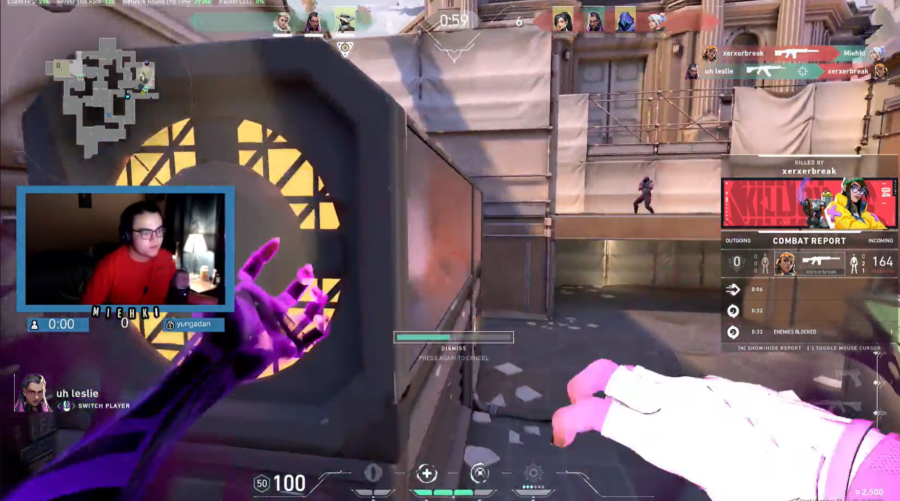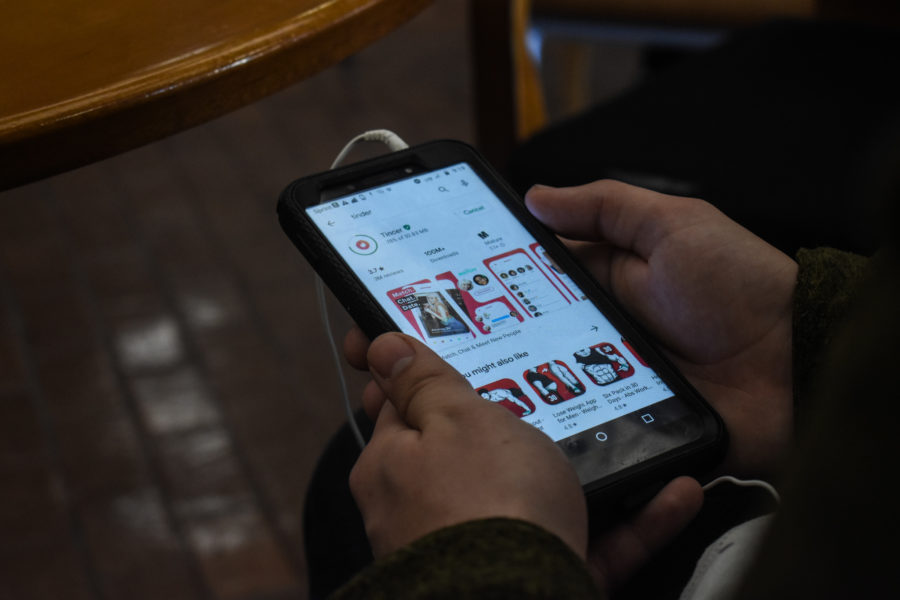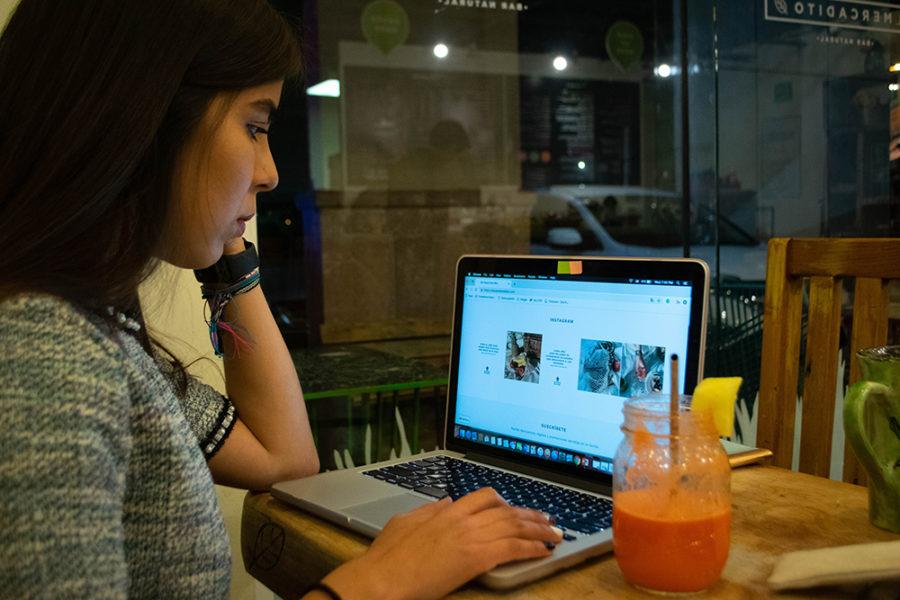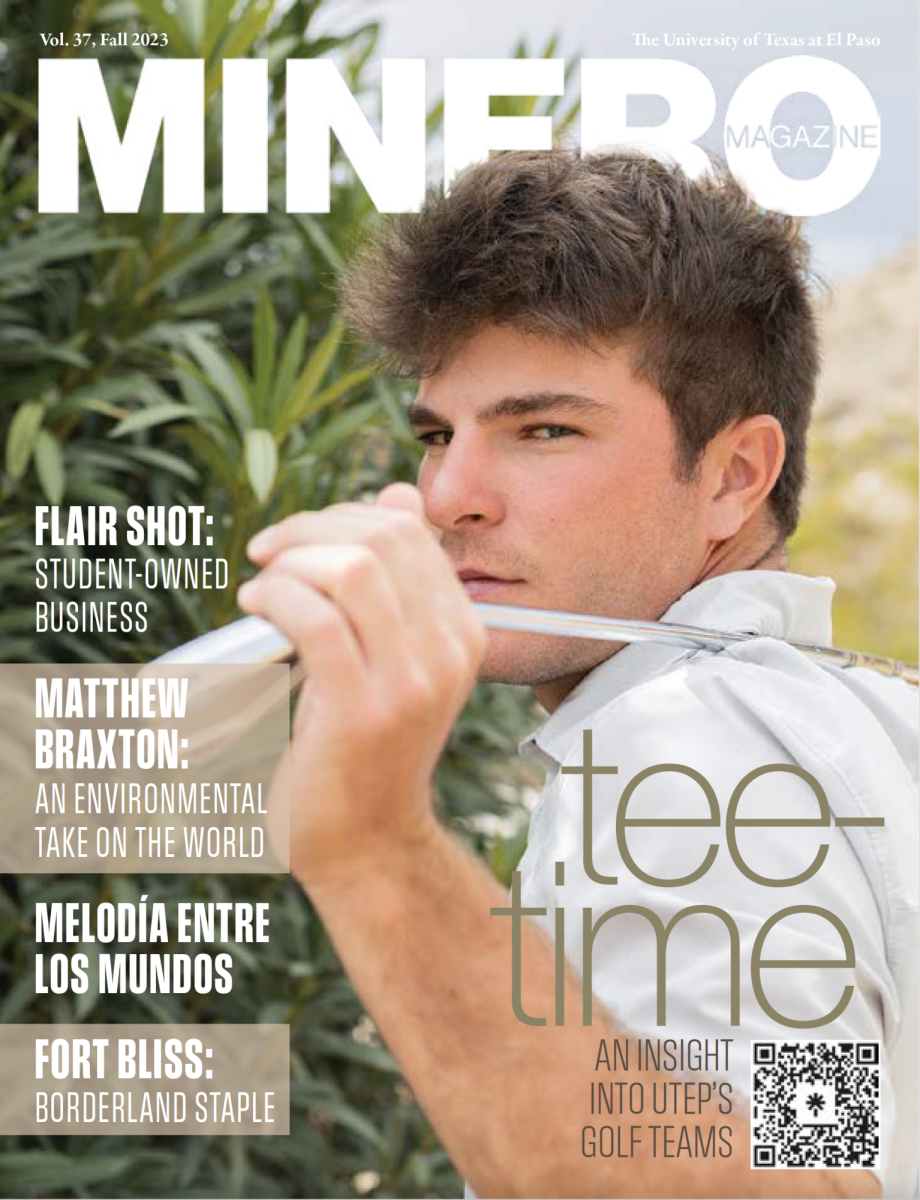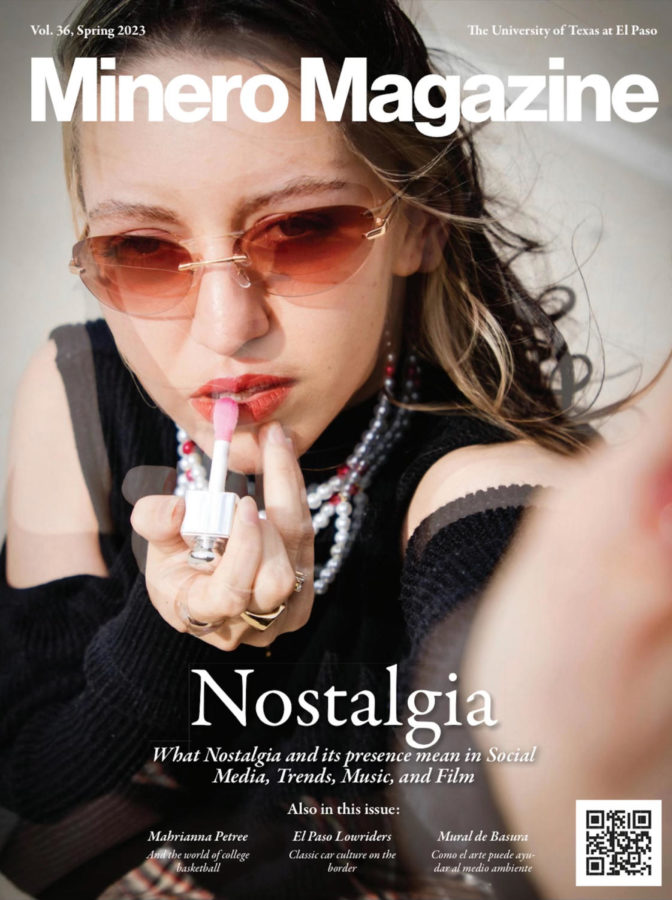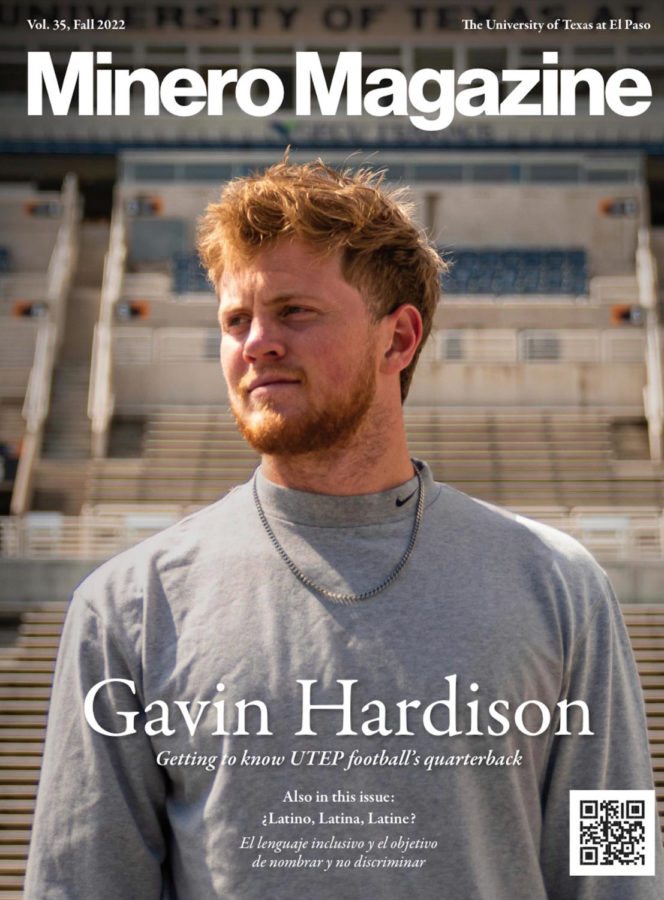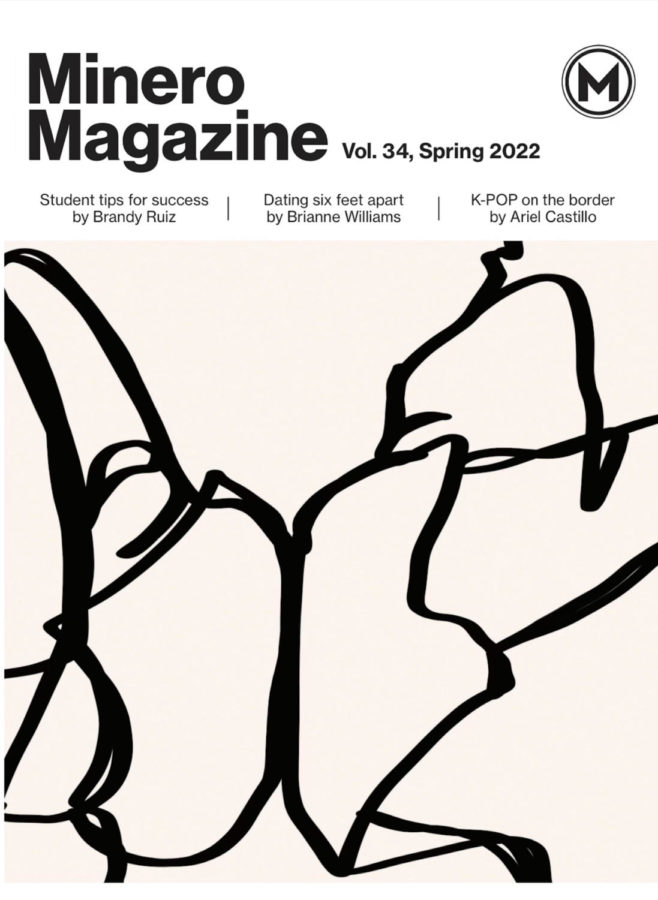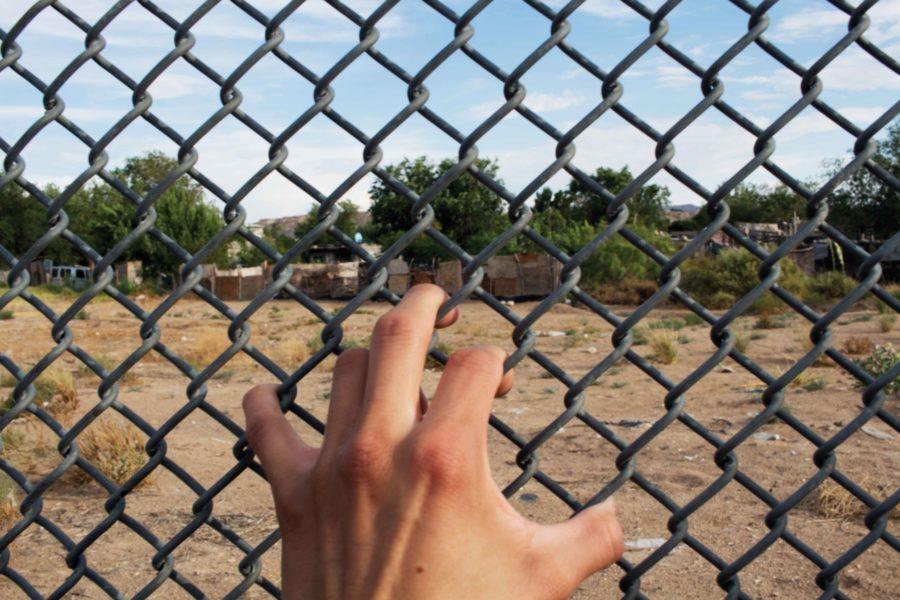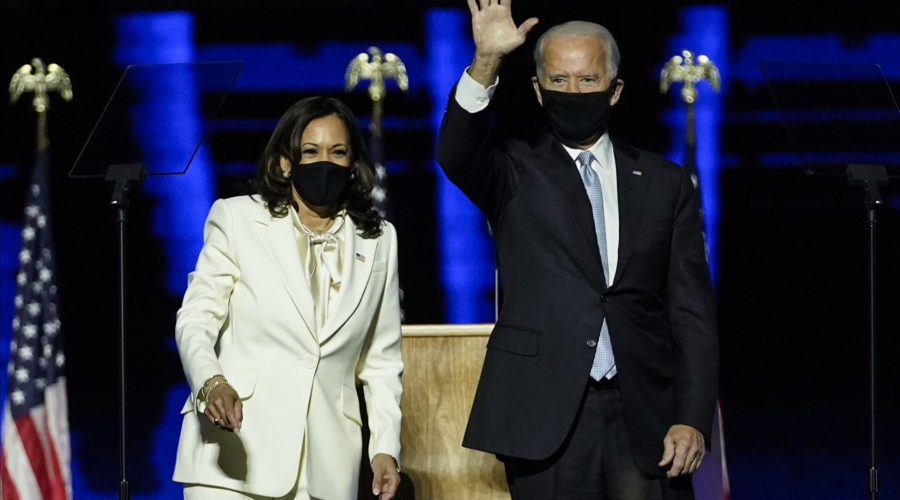Story by Adrian Broaddus Design by Jacobo de la Rosa
Raised in a conservative household, politics and ethics were instilled into Yussef Luna’s everyday behavior. Yussef, a junior political science major, is constantly advocating for conservative values and working to improve his manners. Sophomore pre-pharmacy major Sydney Wharton’s parents never forced her to sway either way on the political spectrum. It was because of her own findings that she discovered she preferred the conservative side of the political realm.
Two individuals who found their political paths in entirely different ways, both Luna and Wharton side with the Republican Party and also share the same Anglo-Saxon racial profile. “My parents did not have any influence on me,” Sydney says. “We never talked about politics or anything. They’re Republican, both of them, but I found that route in my own way.”
While Yussef was born and raised in a Republican-based home, Sydney was able to scope out both sides and truly discover the political party that suited her best.
When choosing their preferred political candidate in this year’s presidential race, it’s obvious both Yussef and Sydney supported the Republican frontrunner. “Rubio was the one I related to the most because he is the only Republican who did some type of legislation towards immigration,” Yussef says.
According to the U.S. Census Bureau’s 2010 census, the Hispanic or Latino community makes up 82 percent of the population in El Paso. The white minority accounts for a mere 17 percent of El Pasoans.
While some would consider El Paso to be a very diverse city, the unpleasant reality of racism is present across the nation. Reverse racism–discrimination against a dominating ethnic group–has sprung up in El Paso and across the nation. “It shouldn’t even be called reverse racism—it’s just racism,” Sydney says. “Reverse racism is so real here. People seem to hate white people for all the wrong reasons. Being a white person in such a heavily concentrated Mexican population—we get discriminated (against) just as much as others.”
The El Paso population has political views that are notorious for catering heavily toward the Hispanic and Latino community. “This is a Hispanic-based culture,” Sydney says. “Culture wise, it makes me wiser in my own culture because now I can advocate more for what I believe in rather than the Democratic community.”
Elections
During the 2016 spring Student Government Association elections at the University of Texas at El Paso, Yussef formed a party called UNITED and ran as the party’s presidential candidate. Although he did not win the election, he realized that race played a big part in how he campaigned. “I got senators who were international students because I know the College of Business is who votes in the SGA elections,” Yussef says. “So I’d get people who were a part of the College of Business, or who hung out there, because I thought they would help.”
Yussef says he was at a disadvantage for being a white SGA candidate because he had to appeal to the Hispanic community on campus. “That’s the main reason people win in SGA—getting the Latino votes because there’s people from different colleges around here at UTEP, but no one spoke to them,” Yussef says. “Everyone in the College of Business knew each other and most were Hispanic and that helped it out a lot.”
Polling
Political science professor Jose Villalobos sees many different voters of different races with his unique style of advocating for voter turnout. He motivates his students to volunteer and provide a non-partisan influence for students by holding voter registration on campus. He is deputized by the court and is allowed to turn in these voter registration cards so people may easily vote.
Villalobos does not try to push a specific party on individuals, but rather advocates for students to actually go out and vote.
In El Paso, voter participation is extremely low. According to the El Paso County Election Department, there were 38,892 registered voters during the early voting session of 2016. That is less than 5 percent of the city’s population who is registered to vote. “Just off the top of the head, I would say that those who are Anglo are willing to register to vote just as any other,” Villalobos says. “The question is who has the greatest challenge when it comes to voting.”
There are many different factors that prevent individuals from voting. The stereotypical misconception that people of the white race are extremely privileged is shot down by Villalobos. “People in poverty, which includes Anglos—it can be extra challenging for them because if you are struggling with poverty and you cannot gain the resources needed to vote, and you are not getting the information of how government works,” Villalobos says.
In Texas, there was a strict photo ID voting requirement. Recently that was ruled as racially discriminatory by the U.S. Court of Appeals. The law required identification be provided in order to cast a vote in elections. This created the potential to marginalize a large group of people. “You have to get your ID, you have to get transportation to the voting location, and if you can’t afford a computer or go on the Internet to see where to vote, it’s more difficult to vote,” Villalobos says. “By race and the numbers, UTEP is majority Latino. But I like to look at it from city, state, and national level—across the board there’s a low number of voters.”
With the slim margin of difference between the percentage of white and Hispanic population throughout Texas, in the end, Villalobos believes that the low number of voter turnout does not come from the white population.
“If there are low numbers of Anglo voters in El Paso, I wouldn’t say it is because it is difficult for them, unless they are in poverty, but it’s the number of people in the city who are Latino,” Villalobos says. “There is not a single majority in Texas right now.”
Sentimental Factors
When considering which party to side on, there are obvious determining factors that sway a person’s opinion one way or another. Often, these factors are either influenced by race or ethnicity. For example, the topic of immigration might influence a Hispanic voter to want changes in the immigration system because they have a family member who is trying to come over to the United States, while a white voter might not have the same sympathy due to the fact that they cannot relate to the struggles.
Another factor to take into consideration in politics is location. Someone from the Southeast United States might not have the same sensitivity towards immigration as someone from the Southwest because they are not located in a border city.
There are other social topics that can determine one’s political views, such as welfare, which Wharton believes isn’t fair to everyone. Sydney believes people should work hard for what they want in life.
“I don’t think that everything should be handed to people,” Sydney says. “I volunteer at the Rescue Mission all the time, so I’m not like ‘damn to all the people in the slums.’ But I don’t think it’s fair to the people who work hard.”
Sydney pays for her own tuition and believes that her drive can be universal to others. “You get what you earn,” Sydney says. “There’s cases of mental illnesses where they do deserve some kind of federal aid, but I think more programs giving back to school would be more awesome.”
While Sydney sided with the conservative values on that issue, Yussef, as a white voter, sympathizes with the Latino community when it comes to certain issues such as immigration. “I took immigration in law class, and I’m not one of those people who think the entire immigration law needs to be changed, but it hasn’t been revised since the 1990s,” Yussef says. “There does need to be some change, but not dramatically, just to make it more simple for people who want to come over legally and people who want to contribute to America.”
When asked about Republican nominee Donald Trump’s stand on immigration, Yussef seemed embarrassed and said he did not agree with Trump’s ideologies. “I think a lot of the politicians who haven’t been to El Paso don’t realize what is going on and it ruins how the Republican Party should approach immigration,” Yussef says. “It isn’t an invasion, but at the same time there are a lot of illegals who aren’t taking our jobs, but they’re running up costs, like hospitals and that’s not fair to us as future taxpayers.”
In the United States Federal Court system, according to the El Paso Federal Court house’s records, nearly a third of its cases are regarding immigration. Luna believes that it is not simply a problem in El Paso, but rather on a national scale. “When people think about immigration, they simply think of Mexico,” Yussef says. “There are other people from other countries who want to get in too. It’s not fair that someone who crosses the border with amnesty gets over, when there might be a doctor from Europe who wants to come over with his family and contribute a lot more than the worker out in the field.”
We’ll have to wait until November to know for sure how the vote in El Paso will help decide whom the next president of the United States will be. One thing is for certain: whether Hispanic or white, many factors can influence how or if people’s votes will make an impact. The necessity for Villalobos’ program to increase voter participation illustrates how few people from this area are voting. Race and ethnicity are only a small factor in influencing how people will vote.
En Breve
Criado en un hogar conservativo, la política fue inculcada en Yussef Luna, un estudiante de ciencias políticas, quien se enfoca en defender los valores conservadores su vida diaria. Los padres de Sydney Wharton, estudiante de farmacia, nunca forzaron sus propias ideas en ella. Fue por su propia cuenta que descubrió y se identifico con el lado conservativo de la política.
Dos individuos con diferentes caminos, Yussef y Sydney son Republicanos de la raza anglosajona, que lidian día con día el vivir en una ciudad en la cual son la minoría. “No se debe llamar racismo inverso – es solo racismo”, dice Sydney. “El racismo inverso es muy real aquí. La gente parece odiar a la gente blanca por razones incorrectas. Siendo blanca en una ciudad con una populación en su mayoría mexicana somos discriminados igual que cualquier otro”.
Según la Oficina del Censo de los Estados Unidos, 82 por ciento de la comunidad en El Paso es latina. La comunidad latina se identifica mayormente con el Partido Demócrata y sus ideales. Sin embargo, al pensar en su voto en las elecciones presidenciales de este año, Yussef y Sydney no tenian duda al apoyar al candidato Republicano. “Me identificaba con Rubio más que nada”, dice Yussef. “Era el único Republicano con experiencia política en el tema de inmigración”.
La decisión de quien apoyar en una elección conlleva varios aspectos como las raíces de la persona y la región en la que viven. El tema de inmigración puede ser más sensible para el votante hispano, mientras que el votante angloamericano no se siente afectado de la misma manera. Del mismo modo, el vivir cerca de una frontera puede formar una opinión diferente a la persona que vive en la costa este.
“Creo que muchos políticos que no han visitado El Paso no entienden lo que esta pasando y afecta la forma en la cual el Partido Republicano trata con el tema de inmigración”, dice Yussef. “Se necesita haber un cambio, pero no dramático. Algo que simplifique el proceso para los que quieren venir legalmente y contribuir en el país”.
El tema de asistencia social también es polarizador en la frontera. Sydney, que creció en un hogar angloamericano y paga su propia escuela, cree que todos deberían trabajar por lo que reciben, con mínima intervención del gobierno. “No creo que todo debería ser regalado”, dice Sydney. “Soy voluntaria en una misión de rescate y no pienso, ‘olvídense de la gente pobre’, pero no creo que sea justo para la gente que trabaja duro”.
Tendremos que esperar hasta noviembre para saber como el voto local ayudara a determinar quien gane la presidencia. La necesidad de un programa por el profesor de ciencias políticas de Jose Villalobos para aumentar la participación de votares es una señal de cómo pocas personas que votan en esta área.


